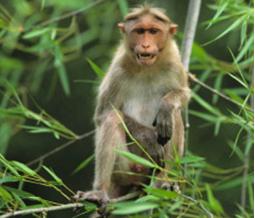1. It's all in the motion - the science of perfect fried rice.
Fried rice isn't something you'd normally associate with state-of-the-art physics research. You'd be wrong. For reasons that remain elusive to me, physicists at Georgia Tech "devised a model for the kinematics of wok-tossing" (1) to explain that "a timely combination of side-to-side and see-sawing motions" cooks the rice thoroughly without burning it. They even published a paper about these momentous findings, which, among other things, notes that 65% of Chinese chefs develop shoulder problems from repetitive motions while holding a heavy wok. The science is very easy to understand, For example...

And (I really shouldn't need to add this, but some of my readers aren't all that bright) it follows that...

...as if we didn't know this already.
The proposed solution?
"This study may inspire the design of stir-fry robotics and exoskeletons to reduce the rate of muscle strain injury among professional chefs."
H. Ko and D. L. Hu The physics of tossing fried rice 17.
J. R. Soc. Interface http://doi.org/10.1098/rsif.2019.0622
So, if I've got this right, design a wok robot in Georgia, set up manufacturing in China and then ship the thing back to the US for use in Chinese restaurants. Hoo boy.
2. The rare Double-Darwin
Here's a good idea! Strap yourself to a steam-powered rocket and launch it 5,000 feet into the air to support your contention that the earth is really flat. What could possibly go wrong?

"Mad" Mike Hughes and his magic rocket. Yeah, this'll work out just fine. Photos: NPR and Mercedes Blackehart/AP
Unfortunately for daredevil crackpot "Mad" Mike Hughes only half of the mission succeded. As you can see in the photos above Hughes did manage to climb into something that looks like one of those coin redemption machines you see in supermarkets and blast off. You'll also note that the parachute was left behind, which suggests a suboptimal outcome. Indeed, Mad Mike plummeted to earth about one-half mile from the launch site. According to the latest update from Our Lady of Blessed Stupidity Hospital, Hughes remains in stable condition – dead.
3. When in Florida don't monkey around with the monkeys
As if we don't have enough animal-based pathogens to worry about at the moment? Just in case, here's one more. Florida is under siege by monkeys that are infected with herpes who are running around attacking people. According to the Daily Star, the rhesus macaques were brought to Florida as a tourist attraction in the 1930s and are now flourishing. Just what we need at the moment - another virus jumping from animals to people.
Steve Johnson, a professor of wildlife ecology and conservation at the University of Florida, estimated that 25% of the monkeys roaming around are infected with the newly-discovered herpes B virus. Herpes B, which is extremely rare, was discovered only two years ago, is found only in monkeys, but it can infect (and kill) humans that are scratched or bitten. Severe brain damage can also result from the infection.
Johnson estimates that if nothing is done there will be 400 macaques in the state within two years. Forgive me for being unimpressed. Even if there are 4 million of them running around the danger from Florida drivers dwarfs that of the monkeys. That could change if the monkeys learn to steal cars and drive, but this is not a given.
NOTES:
(1) Your tax dollars at work, folks.




